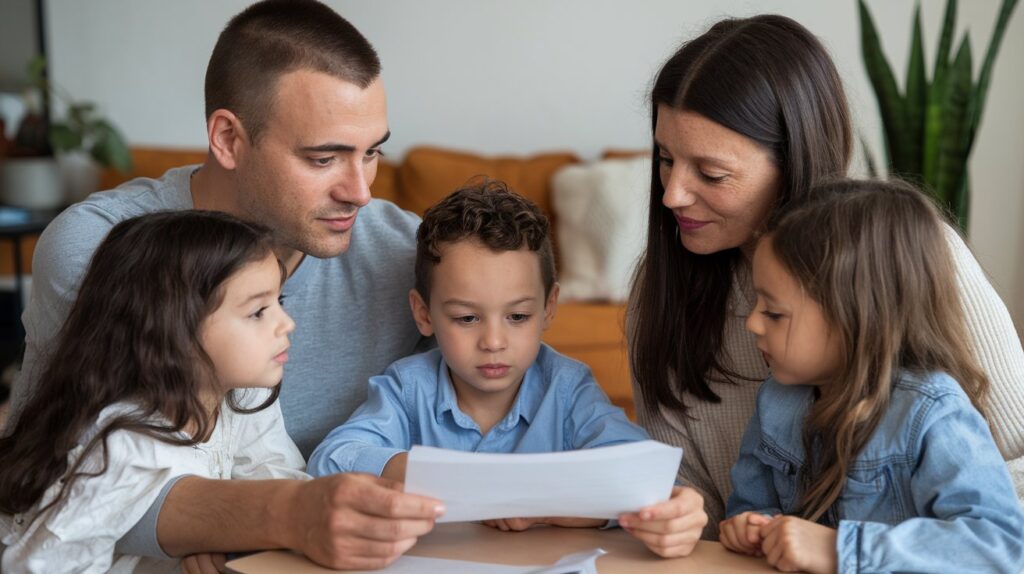The Importance of Effective Communication in Family Relationships

Effective communication in family relationships is the cornerstone of a happy and harmonious home. It’s not just about sharing words; it’s about connecting on a deeper level. Families that communicate well foster understanding, trust, and love among members. Yet, many families struggle with expressing thoughts and feelings openly.
Imagine sitting at the dinner table where silence fills the air instead of laughter or meaningful conversations. This scenario is all too common in today’s fast-paced world. Life gets busy, distractions abound, and genuine dialogue often takes a back seat.
However, improving communication can transform your family’s dynamic dramatically. By nurturing open lines of conversation, you pave the way for stronger bonds that withstand life’s challenges. Let’s dive into why effective communication plays such a vital role in family relationships and how to cultivate this essential skill within your household.
The Impact of Effective Communication on Family Dynamics

Effective communication serves as the backbone of family dynamics. When families share thoughts openly, understanding flourishes. This openness fosters trust and strengthens emotional ties.
When members express their feelings clearly, conflicts reduce significantly. Misunderstandings often arise from vague expressions or assumptions. By addressing issues directly, families can resolve disputes more swiftly.
Moreover, effective communication encourages collaboration within the family unit. Decisions become easier when everyone feels heard and valued. It creates an environment where each member’s opinions matter.
Healthy discussions also model positive interactions for younger generations. Children learn how to communicate effectively by observing their parents’ conversations. This skill becomes invaluable as they navigate relationships outside the home.
The ripple effect of good communication can be profound, impacting not only immediate relationships but extending to broader social connections too.
Common Communication Issues in Families
Families often face unique communication challenges that can hinder their relationships. One common issue is the tendency to avoid difficult conversations. This can lead to misunderstandings and resentment.
Another problem arises from different communication styles. Some family members may be direct, while others prefer a more subtle approach. These differences can create confusion and frustration.
Technology also plays a role in modern communication issues. Many families find themselves glued to screens instead of engaging with one another face-to-face. This disconnect hampers genuine interaction and emotional closeness.
Additionally, assumptions can cloud discussions. When family members assume they know what others are thinking or feeling, it stifles open dialogue and breeds conflict.
Busy schedules often leave little room for meaningful conversations. Without dedicated time for each other, important topics may go unaddressed, leading to further complications in relationships.
Tips for Improving Communication within the Family
Improving communication within the family starts with active listening. Make an effort to truly hear what each member is saying, without interrupting or formulating your response while they speak. This fosters a sense of respect and understanding.
Establish regular check-ins where everyone can share their thoughts freely. Designate a time for open discussions, whether it’s during dinner or a weekend activity. This promotes transparency and strengthens connections.
Use “I” statements instead of “you” accusations to avoid defensiveness. For instance, say “I feel upset when…” rather than “You always make me angry.” It invites empathy instead of conflict.
Creating a safe space for conversations is vital too. Encourage honesty without fear of judgment or retaliation. When family members know they can express themselves openly, relationships flourish naturally.
Practice patience and empathy. Efforts to understand one another lead to deeper bonds over time.
Benefits of Good Communication in Family Relationships
Good communication in family relationships fosters trust and understanding. When family members express their thoughts openly, it strengthens emotional bonds.
Another key benefit is conflict resolution. With effective communication, misunderstandings can be addressed promptly. This leads to fewer arguments and a more harmonious home environment.
Additionally, good communication promotes active listening. Family members feel valued when they know their opinions matter. This encourages everyone to share feelings without fear of judgment.
Moreover, families that communicate well often experience increased resilience during tough times. They support each other better and tackle challenges together as a unit.
Positive interactions create lasting memories and experiences within the family. Moments filled with laughter and shared stories reinforce connections that last a lifetime.
Challenges and Solutions for Maintaining Effective Communication
Maintaining effective communication in family relationships can be challenging. Busy schedules often lead to rushed conversations, creating misunderstandings. These misinterpretations can escalate tensions and hinder connections.
Emotional barriers also pose a significant hurdle. Family members may struggle to express their feelings or fears, leading to unresolved conflicts. This silence can create a rift over time.
Practicing active listening is crucial. It encourages family members to share openly without judgment. Setting aside dedicated time for discussions improves understanding and empathy.
Using technology wisely can help too. Group chats or video calls allow families separated by distance to stay connected regularly.
Encouraging open dialogue about personal challenges fosters trust and support among family members. Creating a safe space where everyone feels valued makes it easier to communicate effectively, ultimately strengthening bonds over time.
Conclusion: Building Stronger Family Bonds through Communication
Effective communication in family relationships is more than just exchanging words. It’s about understanding, empathy, and connection. Strong communication skills can transform the dynamics within a family, making it easier to navigate challenges together.
When families prioritize open dialogue, they create an environment where everyone feels heard and valued. This fosters trust and strengthens bonds over time. By addressing common issues like misunderstandings or assumptions head-on with clear communication strategies, families can overcome obstacles that may arise.
Investing time in improving how we communicate benefits every member of the family. Simple practices such as active listening or setting aside regular times for discussions can lead to significant positive changes. Families who embrace these habits often find themselves enjoying deeper connections and mutual respect.
As you work on enhancing effective communication in your own family relationships, remember that it’s a journey worth taking. Each step toward better understanding brings you closer together and nurtures lasting bonds that withstand life’s ups and downs.



